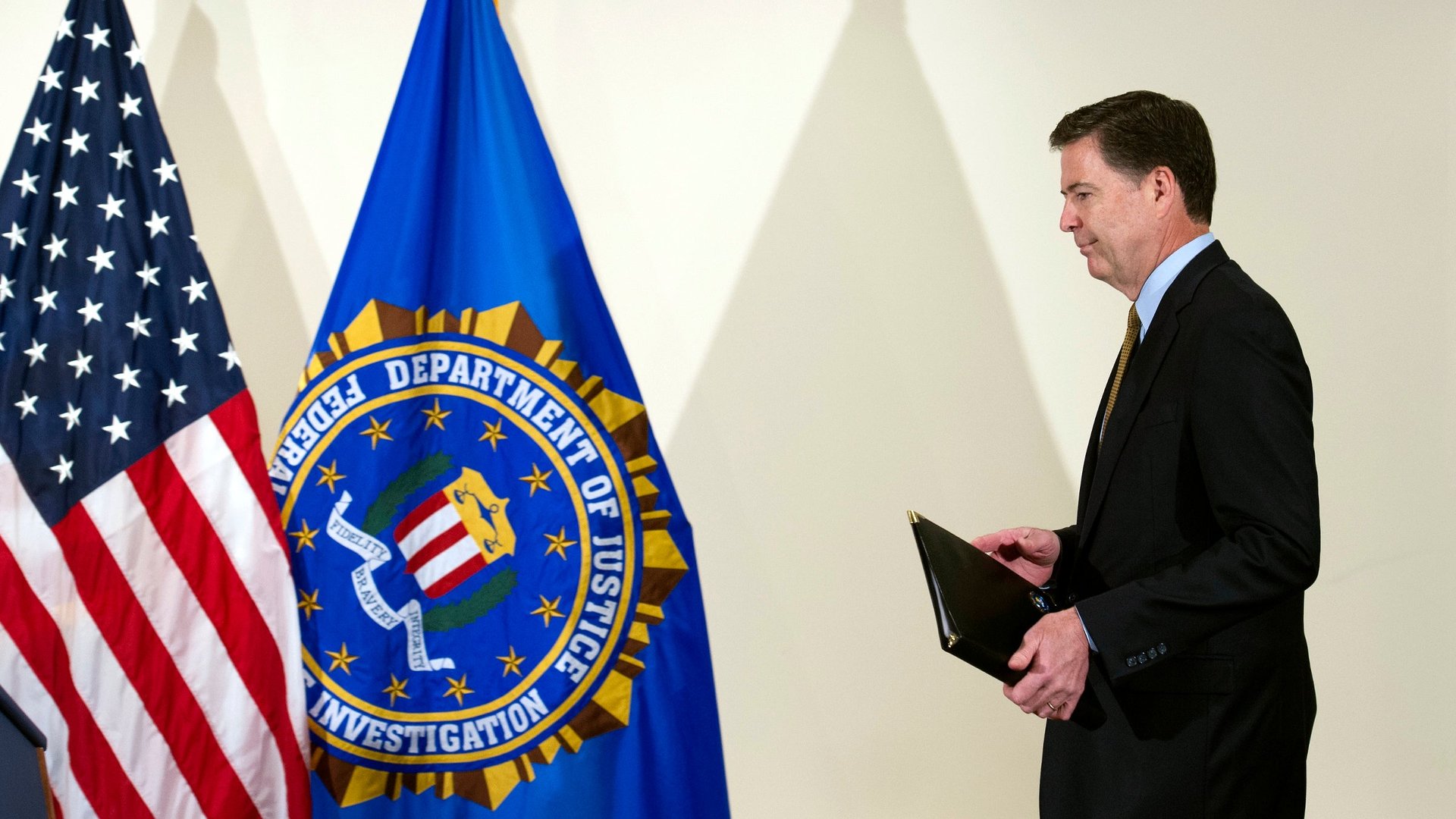The FBI recommends not pressing charges against Hillary Clinton for her handling of classified emails
The FBI has recommended that no criminal charges be filed against Hillary Clinton for her use of a private email server while leading the State Department, director James Comey said in a statement this morning.


The FBI has recommended that no criminal charges be filed against Hillary Clinton for her use of a private email server while leading the State Department, director James Comey said in a statement this morning.
The agency concluded that there was “no intentional misconduct” in the case. But Comey did chide the likely Democratic presidential nominee and her staff, saying they were were “extremely careless in their handling of classified information.” Clinton used a non-government email address, routed through a server in her home.
Clinton was interviewed by FBI agents for three-and-a-half hours on Saturday morning—apparently the final step in an exhaustive investigation that Comey said was performed “honestly, confidently and independently,” in which ”no outside influence was brought to bear.”
Comey said he had not coordinated his announcement with the Department of Justice, but that the public importance of the matter made him take the unusual step of announcing his agency’s prosecutorial recommendation. Last week, a meeting between former president Bill Clinton and attorney general Loretta Lynch led to widespread criticism given the on-going investigation. Lynch has said her agency will follow the FBI’s recommendation.
Comey described a vast computer forensics effort to trace more than 30,000 emails sent and received by Clinton during her tenure as secretary of state: 110 emails were determined to contain classified information, including eight that were top secret. It’s not clear what the contents of these e-mails are, but some reportedly concerned news stories about the US drone program.
The FBI director said there was no immediate evidence that hackers accessed the system, but that “it is possible that hostile actors gained access” to the e-mails, due to the lack of security precautions and her use of the email accounts while in foreign countries with advanced surveillance systems.
While the critique of Clinton’s handling of classified information may harm Clinton’s public image, the FBI’s statement that she should not be prosecuted removes one of the final nagging doubts about her campaign against Donald Trump, just weeks before both candidates accepts their presidential nominations.